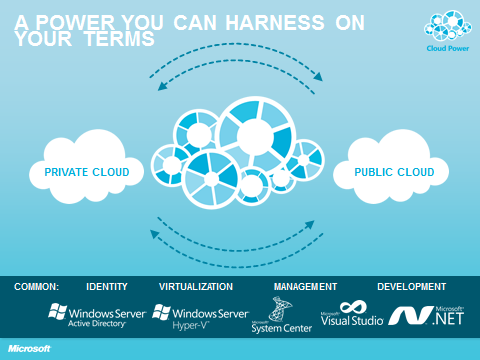Saudi Aramco Cloud Computing Forum
I was surprised that an Enterprise Customer will be the first to organize such a successful visionary event in Saudi Arabia. This week, I had the pleasure to attend the Cloud Computing Forum organized by Saudi Aramco (largest Oil & Gas Company in MEA) in the City of Al-Khobar, Saudi Arabia.
Just to give you a glance about the forum, it had speakers from all the Cloud offering Vendors and Saudi service providers;
- STC
- Mobily
- Microsoft Corporation
- HP
- VMWare
- Oracle
- EMC
- DELL
- IBM
And with Keynote Speakers from Aramco, Saudi Investment Authority and IDC MiddleEast, the overall experience was incredible. The level of energy, Passion, Openness, Vision and quality varied from one Speaker to another, which gave the crowd a diversified experience with different offerings and focus; from PaaS (Platform as a Service), to IaaS (Infrastructure as a service) and SaaS (Software as a service).
Most of the Speakers agreed on one thing; that Cloud Computing can be defined in several different Ways, it’s still too early to have one fixed definition. Each has his/her own pains and business needs, you can hear common points like; ease of deployment, Scalability, Agility, cost reduction (CAPEX to OPEX), pay as you go (use), Availability and Security prioritized and addressed differently from Vendors and Customers as well. And not surprisingly, all of them agreed that Privacy is their biggest fear to move to the Cloud, and frankly I don’t see a single vendor that addresses this problem well enough.
Microsoft Cloud Story:
Not Being Biased and all, but Microsoft’s Cloud story was really different and interesting than the others (Some of them were more interested to address virtualization, vCompete, vGartner, vAnything….). Microsoft did a good job having the same cool productivity story offered today on-premises and ONLINE (Public Cloud). I believe that having Microsoft Partners (Mostly Service providers) to do that at the beginning (with Microsoft Private Cloud offering) gave Microsoft a lot of experience with an insight on the different markets and customers’ needs, Microsoft had a very good leap start. Besides that, in my point of view, Microsoft’s key success factors of being one of the Current Cloud Leaders are;
1- Being there in the cloud for more than 15 years (Hotmail, Windows Live, XBOX Live…).
2- Microsoft has also been an Enterprise centric vendor.
3- The agility to change its commercial offerings (ex: Office 365).
4- The ability to keep the same user experience across multiple devices (anytime, anywhere)
5- Partners offering (Azure)
Challenging Question
IS Microsoft Public Cloud offering the end of Microsoft partners’ Private cloud offerings? I would Say NO
Why?
1- Not all customers (especially in Emerging markets like MEA) will be convinced to have their data hosted in UK, ASIA or even the US. So a local Private cloud will still be their solution.
2- Flexibility and control of the private cloud to have some customizations is still a big advantage.
3- WAPA (Windows Azure Platform Appliance) a turnkey cloud platform thatservice providers, large enterprises and governments can deploy in their own datacenter, across hundreds to thousands of servers.
4- Private Cloud is available NOW!
Microsoft Public Cloud Offering

Common offerings in Private Cloud and Public Cloud

Potential of Saudi Arabia....
Worth mentioning the Saudi Investment authority speaker positioning Saudi as a cloud offering HUB that can serve the region. His 3 key reasons were;
1- Saudi is the Largest ICT Market in the Region
2- Energy and Affordability
3- Location ( I don’t agree a lot with that)
Definitely Saudi has the potential, I haven’t seen this mature cloud technologies and offerings anywhere in the Gulf at least.
In Conclusion:
For me, the Key takeaway was definitely that most customers are thinking of Hybrid Cloud Computing. Customers will choose from the Public/Private Cloud offerings services but they’ll still keep a lot of services and/or Infrastructure on-premises. Worth mentioning HP’s Regional Sales Director saying that each vendor should define his/her own “Unified Catalogue”, very descriptive and strong words.